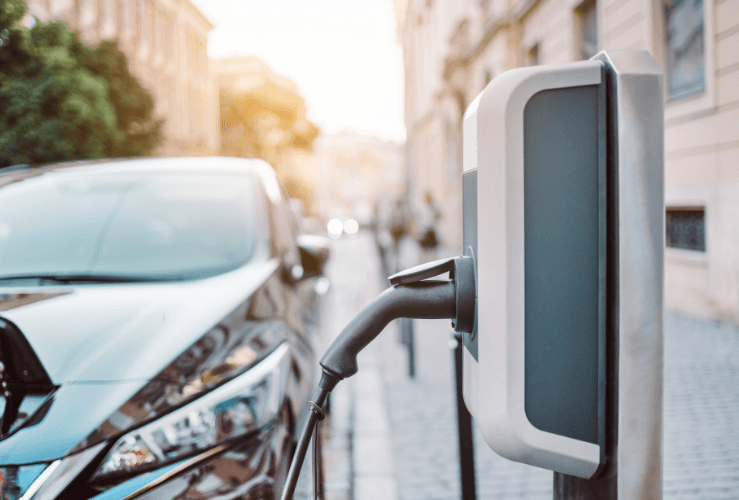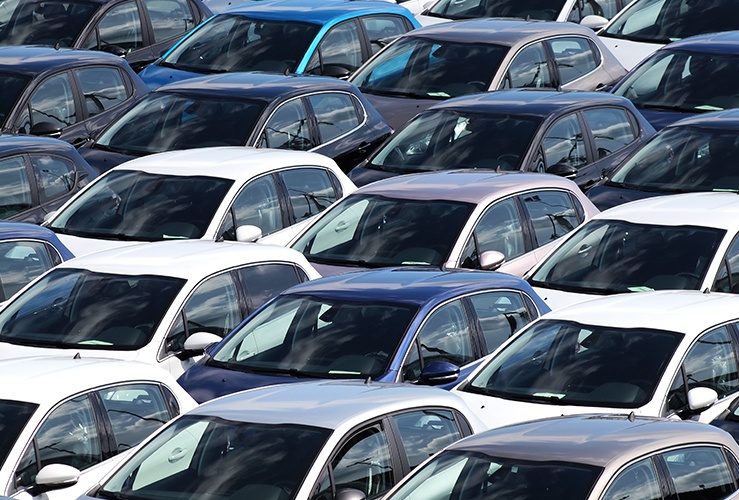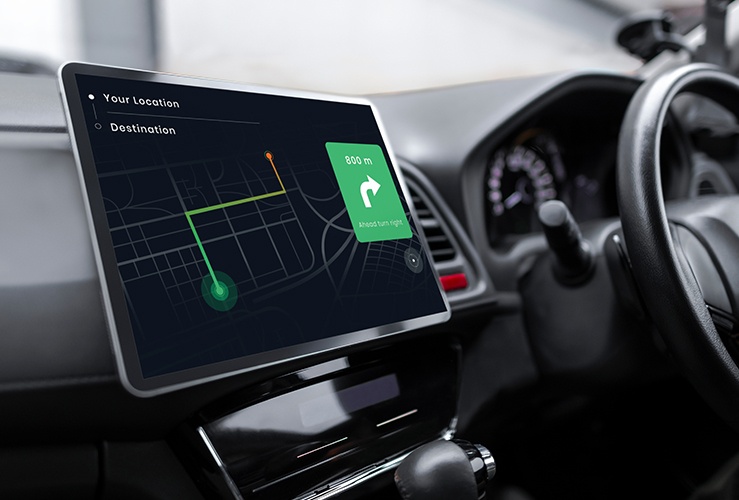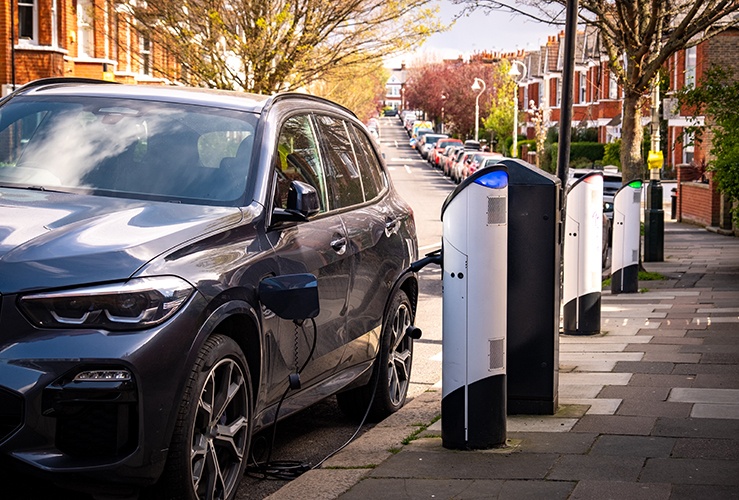Thinking about switching from your petrol or diesel car to an electric model? If so, you have two main options for getting behind the wheel of one: to buy or to lease.
So, should you buy or lease an electric car?
 Lease or buy an electric car: Explained
Lease or buy an electric car: Explained
There are many ways you can own your own EV. You could pay for it using savings or arrange a Personal Contract Purchase (PCP) or hire purchase (HP) electric car deal. You might also choose to pay for it on a credit card, take out a personal loan to cover the cost, and then pay the sum back.
Leasing is distinct from the above options in that you must pay a deposit and monthly leasing fee, then hand the EV back after an agreed time.
But for some, the idea of owning their car is very important - the notion that "it's mine".
However, unless you're buying the vehicle outright with savings, you would be obtaining the car on some kind of credit - and if you fail to make repayments on that credit, it’s possible you could lose the car.
In this sense, some would argue that buying an EV on finance isn't really true ownership.
 Buying outright: does it make sense?
Buying outright: does it make sense?
It's a wonderful feeling to drive off a dealership forecourt in a brand-new EV. But this joy must be tempered by the fact that the vehicle depreciates as soon as you've waved goodbye to the salesperson.
Estimates vary, but a new car may lose 10% of its value on day one, and between 15 and 40% by the end of the first year of ownership.
Depreciation could be worsened if there's an economic downturn; this often means used car prices fall, too. (However, there are exceptions: during the Covid-19 lockdowns, car manufacturers closed, increasing demand - and prices - for used cars.)
But whether buying with savings or through finance, any depreciation can be galling.
When is purchasing instead of leasing a good idea?
There are five key situations when purchasing could make more sense than leasing:
- Poor credit rating. A bad credit score could mean a lending firm refuses your application. However, with bad credit other finance options may also be closed to you - so you would need to use savings to buy the car outright.
- You plan to drive the car for a long time. If you intend to 'run the car into the ground' and/or you really love your chosen model, buying could be better than leasing.
- You drive a lot. If you plan to drive more than the mileage limit (usually between 5,000 and 15,000 miles), a leasing plan could see you pay extra mileage fees - so it might not be the best option.
- You only drive used cars. This rules you out of leasing since you can only lease a new car.
- You plan to modify the car. If you intend to change things like the wheels and seats, then leasing is out of the question since ‘mods’ are not generally permitted.
 Benefits of leasing an EV
Benefits of leasing an EV
No depreciation worries
A major benefit of leasing an EV is that, while it will depreciate in the same way, it's not something you'll need to worry about - since the vehicle ultimately belongs to the leasing company.
You get a new car every year or so
With leasing, you get to choose a contract of a certain period - usually 12, 24 or 36 months. Once this time is up, you can lease a new car on a new contract.
This is ideal if you want to have the very latest EV technology - and the kudos that comes with switching to a shiny new electric vehicle.
An affordable way to drive an EV
Electric vehicles are still relatively expensive and may be a financial impossibility if you plan to buy outright. But leasing could be an affordable way to get behind the wheel of one of the latest EVs.
You won't be landed with outdated technology
Since the world of EVs is evolving so fast, if you bought outright, you could find your vehicle is outdated just a few years later.
Leasing eliminates this problem because once your lease ends you can lease a brand-new model.
Some leasing firms allow you to upgrade your contract, so you may not even have to wait until the lease ends to get your driving gloves on the very latest EV.
Leasing an EV: downsides
When it comes to leasing an EV, there could be some disadvantages. These can vary depending on the leasing firm and/or the contract they offer you.
Cons may include:
- Charges for excessive wear and tear/damage
- Charges for driving more than the mileage limit
- Penalty charges for leaving the contract early
- High excess on insurance
- Large upfront cost
On this last point, the upfront cost ('initial rental') is the amount you pay before the monthly payments begin. For a hatchback, this could be £1,000 - £1,500. For a more expensive vehicle such as a Tesla Y, the initial rental could be as much as £3,000. Your ongoing financial stability
Your ongoing financial stability
While a lessee may have a good income when they take out an EV lease, it's possible they may not in the future.
A job loss could be made even more stressful if there are several hundred pounds of lease fees coming out of the bank every month.
The finance house may be able to reduce or defer repayments for a period to help in such situations.
But if repayments continue to be missed, the lessee could have their EV repossessed - although this is a worst-case scenario.
If repossession does take place, the lessee would still be liable to pay:
- Any remaining lease balance
- Past-due payments (if any)
- Any applicable excess wear-and-tear charges
- Any applicable excess mileage charges
- The cost of repossession
- Cleaning costs/other resale costs if the lessor sells the EV after repossession
- Any deficiency on the car resale price (when the sale price does not satisfy the lease)
If items such as those listed above are not paid for, the leasing company may enlist a third-party collection agency, the cost for which would be added to the bill.
Many would find such circumstances, while a worst-case scenario, extremely stressful to deal with.
How does this compare to PCH, HP or PCP electric car payment difficulties?
If your financial circumstances mean you cannot pay your Personal Contract Purchase (PCP), Personal Contract Hire (PCH) or Hire Purchase (HP) payments, the debt would continue to build up.
Again, the finance house may be able to reduce or defer payments for a period, but repossession of the vehicle could occur if the restructured payments are not honoured.
The key advantage to the car finance options above is that you have the possibility of selling your car, the proceeds of which may be enough to cover the outstanding debt.
This would not be an option if you leased an EV.
It should be noted that the finance house does not want you to default on your repayments, and so would look at other options before deciding to repossess the vehicle. What is a rent-to-buy electric car?
What is a rent-to-buy electric car?
A rent-to-buy electric car is one for which you pay a monthly rental fee over an agreed period.
Once all payments are complete, you can choose to buy the car (or with some agreements, keep the car without further cost).
Rent to buy electric cars are often used cars - but some companies offer new cars.
Rent-to-buy has some similarities with hire purchase or personal contract purchase agreements, but some agreements allow you to keep the car once all payments are made.
Can I rent-to-buy an EV with bad credit?
Some rent-to-buy electric car companies may consider your application even if you have bad credit - but it depends on how the given service works. For example, with some firms, you simply pay one week in advance.
A rent-to-buy EV could be a good way to invest money for the long term - particularly if you get to keep the vehicle at the end of the agreement.
Some plans include maintenance and roadside assistance - while others add an extra fee for these benefits.
You may also be required to make a down payment or pay a joining fee with some plans.
Always read the small print
According to one 2020 survey, 69% of motorists aged over 55 bought their car outright without using finance, compared to half of 34-54 year olds and 33% of under-34s.
If you find yourself in the significant group of drivers who use leasing, HP or PCP deals on electric cars, it's important to read the contract in detail - and be aware of what could happen if you become unable to make repayments.




